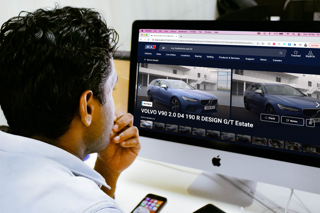The current drive for increased new car sales has been a strong focus for most motor retail leaders in the past six months.
Yet for many a dedicated resource has ensured the used car operation has not dropped the ball as a result.
The depressed economy of the past four years has led to dealer groups widening their used car stock profiles and retailing more part-exchanges that meet their standards or that can be quickly and cost-effectively refurbished in-house.
It has been a necessary tactic.
Automotive consultant Chris Oakham, of Trend Tracker, said the up-to-four-year car parc is now 23% off its 2004 peak and will recover only when new registrations increase consistently.
With inflation outstripping income, people are finding their disposable income squeezed and are keeping their car for an average of six months longer.
This reinforces the opinion that franchised dealers must view the used car customer as one to keep.
Yet the volume of annual used car transactions has been largely flat at around 6.7 million since 2008.
Oakham said franchised dealers are missing out on a significant opportunity to retain their used car buyers, and should be offering service plans and MoT tests as retention tools.
These customers are cost conscious and may not see themselves as typical franchised workshop customers.
However, several manufacturers’ networks have begun to combat this perception through national fixed price service and repair programmes for older models.
In the 12 months to March, used vehicle return on investment rose by 13 percentage points to 87.2%, according to data published by ASE, as dealers acknowledged the significant contribution the used car department can make.
ASE’s analysis in 2012 showed there was a clear increase in the return on investment and profitability of vehicles which are more than five years old, priced below £5,000 and retailed within 30 days.
Mike Jones, ASE chairman, said: “It can be no coincidence that this is the area of the market which the majority of the franchised dealers steer well clear of and sees the people who specialise in this area performing significantly better than the average dealership.
“Buying these vehicles effectively requires time, focus, management and skill – factors which may all be lacking in a franchised dealer.
"Time is frequently diverted into more pressing (although less profitable) new vehicle issues. Leaders in the business need to recognise this.
“The exact desirable price point clearly differs according to the badge which the dealership has over the door.
"However, we have had some great success working with dealers to actively profile their desired stock and then work to bring the current stock in-line with this plan.”
ASE analysis pointed out that a vehicle at five years or older realised £58 more average gross profit than a three- to four-year-old car and £227 more than a one- to two-year -old, even after reconditioning.
And cars still in stock at 61-90 days will realise only about 30% of the gross profit that would’ve been achieved if sold within 30 days.
Only one in four franchised dealers has an annual stock turn of 8-12.





















Login to comment
Comments
No comments have been made yet.